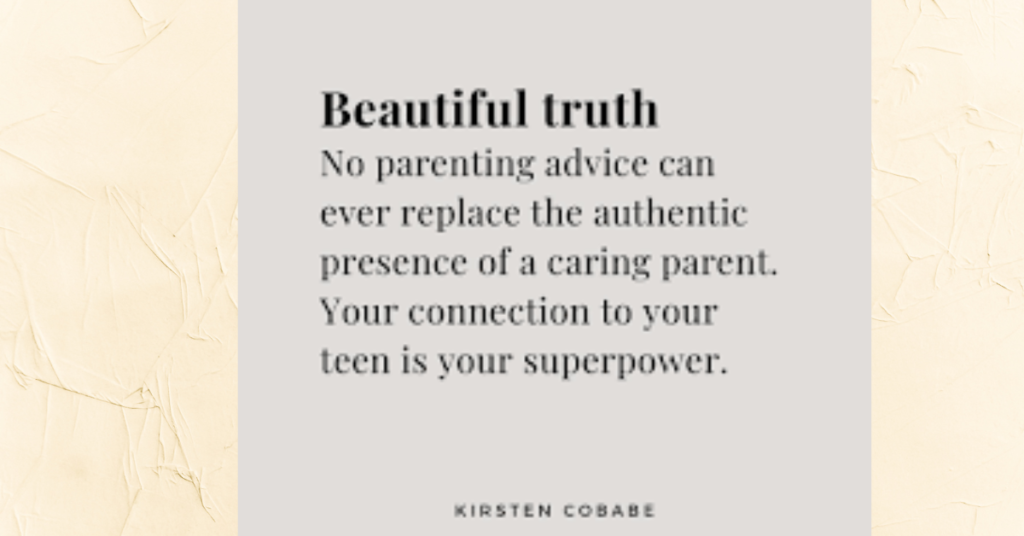Jump To Section
Navigating Conditional Love Expectations vs. Authenticity
In today’s fast-paced and ever-evolving world, parenting can often feel like navigating a complex maze. You’re constantly juggling responsibilities, striving to meet your children’s needs while also managing your own. Amidst this whirlwind, the concept of conscious parenting offers a refreshing and transformative approach.

Conscious parenting is all about being fully present and aware in your interactions with your children. It emphasizes mindfulness, empathy, and a deep understanding of your child’s unique individuality. Rather than relying on traditional authoritative methods, conscious parenting encourages you to see and respond to your child’s inner world, fostering a more nurturing and supportive environment.
Now, let’s dive into two crucial concepts within conscious parenting: conditional love and authenticity. Conditional love refers to the love and approval that children receive based on certain conditions or behaviors. For example, praising your child only when they get good grades or behave well. While this might seem harmless, it can inadvertently teach children that their worth is tied to their achievements and actions. This can lead to a constant quest for external validation, potentially impacting their self-esteem and emotional well-being.
On the other hand, authenticity in parenting is about encouraging your child to be true to themselves. It means accepting and valuing them for who they are, not just for what they do. Authenticity fosters a sense of security and self-worth, allowing children to explore their interests, express their emotions, and develop a strong, independent sense of self. When you embrace authenticity, you create a safe space for your child to grow and flourish without the fear of judgment or rejection.
The purpose of this blog is to help you navigate the delicate balance between conditional love expectations and fostering authenticity in your children. By understanding and implementing conscious parenting principles, you can create a nurturing environment where your child feels loved and valued for who they truly are.
We will explore practical strategies for setting realistic expectations without compromising your child’s authenticity. You’ll learn how to encourage self-expression, recognize and address conditional love patterns, and handle resistance with empathy and patience. Through daily practices, family activities, and self-care tips, you’ll be equipped to support your child’s journey toward becoming a confident and authentic individual.
Ultimately, our goal is to empower you to cultivate a deeper, more meaningful connection with your child. By embracing conscious parenting, you can help your child navigate the world with a strong sense of self, knowing that they are loved unconditionally. Join us on this journey to foster a more authentic and loving relationship with your child, one mindful step at a time.
Understanding Conditional Love in Parenting
Conditional love is a parenting approach where a child’s worth and affection are contingent upon meeting specific expectations or behaviors. In other words, children receive love and approval based on conditions set by their parents. For instance, praising a child only when they achieve good grades, behave well, or excel in extracurricular activities are common examples. This type of love implies that children must earn their parents’ approval through their actions and achievements.

Such conditional love can manifest in various ways. Imagine a scenario where a child receives extra attention and praise only when they perform exceptionally well in school. Alternatively, a parent might withdraw affection or become distant when a child misbehaves or fails to meet certain standards. These patterns create an environment where the child’s sense of worth is tied directly to their accomplishments and behavior.
The psychological and emotional effects of conditional love on children can be profound. When love and approval are contingent upon meeting specific criteria, children may develop a constant need for validation. They might strive for perfection to earn their parents’ affection, leading to stress, anxiety, and low self-esteem. Over time, these children may struggle with feelings of inadequacy and fear of failure, as they learn to equate their worth with their performance.
Research supports these observations. According to a study published in the “Journal of Child and Family Studies,” children who perceive their parents’ love as conditional are more likely to experience higher levels of depression and lower self-esteem. The study suggests that conditional love can undermine a child’s intrinsic motivation, making them more dependent on external validation rather than developing a healthy sense of self-worth.
Expert opinions also highlight the long-term consequences of conditional love. Dr. Edward Deci, a renowned psychologist, emphasizes that conditional love can hinder a child’s emotional development. He argues that when children are conditioned to seek approval through their achievements, they may grow up to become adults who are overly concerned with meeting others’ expectations, potentially leading to chronic stress and dissatisfaction.
In conclusion, conditional love can have significant psychological and emotional impacts on children. By tying love and approval to specific behaviors or achievements, parents risk instilling a constant need for validation and a fragile sense of self-worth in their children. It is crucial for parents to recognize the potential harm of conditional love and strive to create an environment where children feel valued and accepted for who they are, not just for what they accomplish. Embracing unconditional love can foster healthier emotional development and a more robust sense of self in children, laying the foundation for their long-term well-being.
The Importance of Authenticity in Parenting
Authenticity means being true to oneself, embracing and expressing one’s genuine thoughts, feelings, and values without fear of judgment or rejection. In the context of parenting, authenticity involves both parents and children embracing their true selves. For parents, this might mean admitting mistakes, expressing true emotions, and sharing personal values openly. For children, it involves encouraging them to explore their interests, express their feelings, and develop their unique personalities.

Examples of authenticity in parents include openly discussing feelings with their children, admitting when they don’t know something, or sharing stories about their own childhood struggles and successes. For children, authenticity might be seen in freely choosing their hobbies, expressing their emotions without fear, or standing up for their beliefs even when they differ from those of their peers.
Fostering authenticity in children has numerous benefits. Authenticity is closely linked to increased self-esteem, as children who feel accepted for who they are develop a stronger sense of self-worth. These children are more likely to experience better mental health, as they feel secure in expressing their emotions and navigating their inner worlds. Additionally, a strong sense of self enables children to make decisions aligned with their values and beliefs, leading to greater life satisfaction and resilience.
Consider the story of Emma, a young girl passionate about painting. Her parents encouraged her to explore her interest, providing her with art supplies and enrolling her in art classes. They celebrated her creations without imposing their own expectations. As a result, Emma developed a strong sense of self-confidence and pursued her passion, leading to numerous achievements in her artistic journey. This support fostered her emotional well-being, as she felt valued and understood.
Research supports these observations. According to a study published in the “Journal of Personality and Social Psychology,” individuals who embrace authenticity report higher levels of happiness and life satisfaction. The study highlights the importance of creating environments where authenticity is nurtured.
In conclusion, fostering authenticity in children is crucial for their emotional and psychological development. By being authentic themselves and encouraging their children to do the same, parents can help their children develop a strong sense of self, better mental health, and increased self-esteem. Embracing authenticity creates a supportive and nurturing environment, enabling children to thrive and lead fulfilling lives.
Balancing Expectations and Authenticity in Parenting
Finding the right balance between setting expectations and fostering authenticity in children can be challenging. However, achieving this balance is crucial for their healthy development. Setting realistic expectations and encouraging self-expression are key components of this process.
Setting Realistic Expectations
Setting realistic and healthy expectations involves understanding your child’s unique abilities and limitations. Start by considering their age, developmental stage, and individual personality. Expectations should challenge children but remain achievable to avoid undue stress and frustration.
To communicate these expectations effectively, use clear, supportive language. Frame your expectations positively, focusing on effort rather than results. For example, instead of saying, “You must get an A in math,” say, “I believe in your ability to do your best in math.” This approach emphasizes the importance of effort and growth, aligning with your child’s authentic self.
Encouraging Self-Expression
Encouraging children to express themselves authentically requires creating a safe and open environment. Start by actively listening to your child. Show genuine interest in their thoughts, feelings, and experiences. Validate their emotions by acknowledging their feelings without judgment. This validation helps children feel understood and valued for who they are.

Provide opportunities for self-expression through various activities. Encourage your child to pursue hobbies and interests that resonate with them, whether it’s art, sports, music, or any other passion. Allow them to make choices and decisions, fostering a sense of autonomy and confidence.
Create regular opportunities for open dialogue. Family meetings or one-on-one conversations can be a great way to discuss feelings, thoughts, and experiences. Use these moments to reinforce the importance of authenticity, letting your child know that their true self is valued and appreciated.
Balancing expectations and authenticity requires ongoing effort and adjustment. By setting realistic expectations and encouraging self-expression, you can create an environment that supports your child’s growth and well-being. This balanced approach fosters a sense of self-worth and confidence, helping children navigate life’s challenges while remaining true to themselves. Ultimately, it lays the foundation for a healthy, authentic, and fulfilling life.
Overcoming Challenges in Parenting: From Conditional Love to Authenticity
Navigating the shift from conditional love to fostering authenticity in your parenting approach can be challenging but deeply rewarding. This transition involves recognizing and addressing ingrained patterns of conditional love and effectively handling resistance from children as they adjust to a more authentic relationship.
Recognizing and Addressing Conditional Love Patterns
To identify conditional love patterns, start by reflecting on your interactions with your children. Do you find yourself offering more praise and affection when they excel or meet certain expectations? Do you withdraw or show disappointment when they fall short? These behaviors indicate conditional love.
Shifting towards unconditional support requires conscious effort and self-awareness. Begin by setting clear intentions to love and support your children regardless of their achievements or behavior. Focus on praising their efforts, resilience, and unique qualities rather than just their successes. For example, instead of saying, “I’m proud of you for getting an A,” say, “I’m proud of how hard you worked on that project.”
Another practical approach is to practice active listening and empathy. Show genuine interest in your child’s thoughts and feelings, validating their experiences without imposing your expectations. This shift creates a supportive environment where children feel valued for who they are, not just for what they do.
Handling Resistance
Encouraging authenticity can sometimes lead to resistance from children, especially if they are accustomed to conditional love. They may test boundaries or struggle to express their true selves. Handling this resistance with patience and empathy is crucial.
First, acknowledge your child’s feelings and reassure them of your unconditional love and support. Let them know that it’s okay to be themselves and that their feelings and opinions matter. Use open-ended questions to encourage dialogue and understanding. For example, ask, “How did that make you feel?” or “What do you think about this?”
Maintain consistency in your approach. Children may initially resist changes but providing a stable, supportive environment will help them gradually adapt. Celebrate small victories and progress in their journey towards authenticity.
Patience is key. Recognize that this transition takes time, and setbacks are normal. Stay committed to fostering authenticity by modeling it yourself. Share your own experiences, admit mistakes, and express your true feelings to show that being authentic is a lifelong journey.
In conclusion, overcoming the challenges of shifting from conditional love to authenticity involves recognizing and addressing conditional love patterns and handling resistance with patience and empathy. By committing to unconditional support and fostering open communication, you can create a nurturing environment that encourages your child to embrace their true self. This approach not only strengthens your parent-child bond but also lays the foundation for their long-term emotional well-being and self-confidence.
Practical Tips and Activities for Promoting Authenticity in Parenting
Promoting authenticity in your children involves integrating mindful practices and activities into your daily life. Here are practical tips and activities to help you nurture authenticity and connection within your family.
Daily Practices
Mindful Communication: Engage in mindful communication with your children by being fully present during conversations. Put away distractions like phones or laptops and focus on listening to what your child is saying. Acknowledge their feelings and respond thoughtfully, showing that you value their thoughts and emotions.
Reflective Listening: Reflective listening involves repeating back what your child has said to ensure understanding and validation. For instance, if your child says, “I had a tough day at school,” respond with, “It sounds like school was really challenging for you today.” This practice helps children feel heard and understood, fostering a sense of authenticity.

Family Activities
Creative Projects: Engage in creative projects as a family, such as painting, drawing, or crafting. These activities provide a platform for self-expression and allow children to explore their interests and talents freely. Encourage them to share their creations and celebrate their uniqueness.
Family Meetings: Hold regular family meetings where everyone can discuss their thoughts, feelings, and experiences openly. Use this time to set family goals, plan activities, and address any concerns. Family meetings promote open communication and reinforce the importance of each family member’s voice.
Parent Self-Care
Model Authenticity: Demonstrate authenticity by taking care of your own needs and well-being. Engage in activities that you enjoy and that recharge you, whether it’s reading, exercising, or spending time with friends. When children see their parents prioritizing self-care, they learn the importance of maintaining their own well-being.
Practice Self-Reflection: Take time to reflect on your parenting journey and your own emotional health. Consider keeping a journal to explore your thoughts and feelings. Self-reflection helps you stay connected to your authentic self, enabling you to model unconditional love and acceptance for your children.
By incorporating these daily practices, family activities, and self-care routines, you can create a supportive environment that encourages authenticity and connection. These efforts will help your children develop a strong sense of self and foster meaningful relationships within the family.
Conclusion: Nurturing Authenticity in Parenting
In the journey of parenting, navigating between conditional love expectations and fostering authenticity is pivotal for cultivating a nurturing and supportive environment for your children. It’s about embracing their true selves and nurturing their growth with unconditional love and acceptance.
Throughout this blog, we’ve explored the concepts of conditional love and authenticity. Conditional love, tied to achievements or behaviors, can inadvertently impact children’s self-worth and emotional resilience. On the other hand, authenticity encourages children to express themselves genuinely, fostering self-esteem and a strong sense of identity.
To achieve this balance, start by recognizing and addressing any patterns of conditional love in your parenting. Shift towards unconditional support by celebrating your child’s efforts and qualities, not just their accomplishments. Create a safe space where they feel free to explore their interests and emotions without fear of judgment.
Handling resistance with patience and empathy is crucial as children adjust to this new dynamic. Validate their feelings and reassure them of your unwavering love and acceptance. Encourage open communication through family activities and regular discussions, where everyone’s voice is heard and valued.
Practical daily practices like mindful communication and reflective listening strengthen bonds and deepen understanding between parents and children. Engaging in creative projects and family meetings fosters self-expression and strengthens familial connections. Remember, your own self-care sets a powerful example of authenticity and prioritizing well-being.
By fostering authenticity, you empower your children to navigate life with confidence and resilience, grounded in their true selves. This journey is not without its challenges, but the rewards are immense—a strong parent-child bond built on trust, understanding, and mutual respect. Together, let’s continue embracing authenticity in parenting, creating a foundation for lifelong happiness and fulfillment for our children.
Additional Resources
Additional Resources for Further Reading
Books:
- The Conscious Parent: Transforming Ourselves, Empowering Our Children by Dr. Shefali Tsabary
- Parenting from the Inside Out: How a Deeper Self-Understanding Can Help You Raise Children Who Thrive by Daniel J. Siegel and Mary Hartzell
- Unconditional Parenting: Moving from Rewards and Punishments to Love and Reason by Alfie Kohn
- The Attachment Parenting Book: A Commonsense Guide to Understanding and Nurturing Your Baby by Martha Sears RN
- Simplicity Parenting: Using the Extraordinary Power of Less to Raise Calmer, Happier, and More Secure Kids by Kim John Payne
- The Whole-Brain Child: 12 Revolutionary Strategies to Nurture Your Child’s Developing Mind by Daniel J Siegel
- Nonviolent Communication: A Language of Compassion by Marshall Rosenberg
- The Self-Driven Child: The Science and Sense of Giving Your Kids More Control Over Their Lives by Willian Stixrud
- Balanced and Barefoot: How Unrestricted Outdoor Play Makes for Strong, Confident, and Capable Children by Angela J Hanscom
- Raising Good Humans: A Mindful Guide to Breaking the Cycle of Reactive Parenting and Raising Kind, Confident Kids by Hunter Clarke- Fields
Articles:
- “The Effects of Conditional Parenting on Children: A Review” – Journal of Child and Family Studies
- “Authenticity and Well-being: Understanding the Role of Self-Verification” – Personality and Social Psychology Review
- “Practical Strategies for Fostering Authenticity in Parenting” – Psychology Today
These resources provide valuable insights and practical strategies for further exploring conscious parenting, understanding conditional love dynamics, and fostering authenticity in parenting relationships. Whether you’re looking to deepen your understanding or seeking actionable advice, these sources offer a wealth of information to support your journey towards nurturing a loving and authentic parent-child bond.
RELATED TOPICS:
Why Conscious Parenting Matters: 5 Awesome Tips for Stronger Bonds
Transform Your Life: 15 Powerful Prioritize Yourself Quotes
Present-Moment Awareness: 14 Techniques for Heart-Mind Motivation




